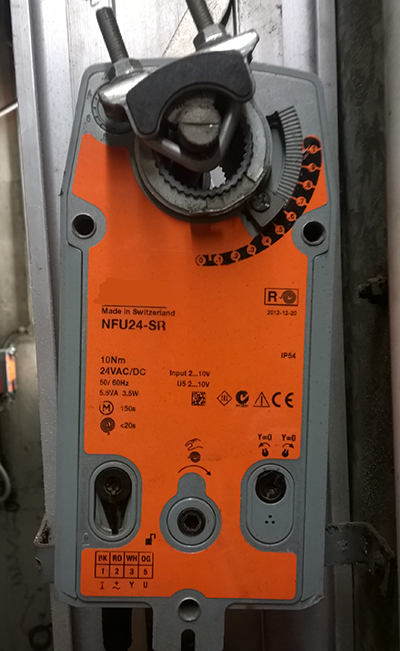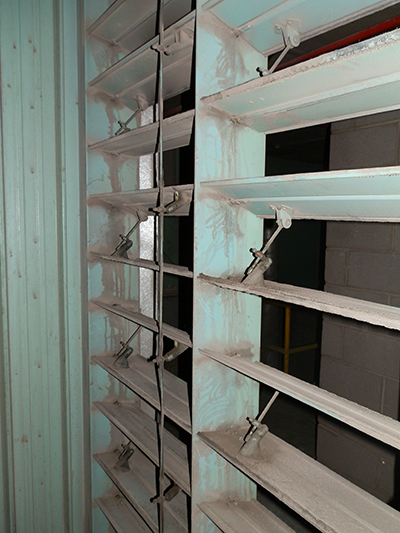
Maintaining Your Economy Dampers in Your HVAC System
Economy Damper Modules which are not functioning create additional energy usage – Why?
There are a few circumstances where faulty economy dampers will actually cost you more in energy than if you have no dampers at all.
The most expensive fault being the economy dampers are shut or out of sync with each other (Return air Damper, Outside air Damper & Exhaust or Spill air Dampers not correctly in sync) causing a pressurization of the duct.
The air has nowhere to go, so the fan (if it is on a variable Speed drive) will increase speed to compensate.
This will cost you more in electrical energy and potentially damage equipment.
Maintaining Your Economy Dampers in Your HVAC System
Economy Damper Modules which are not functioning create additional energy usage – Why?
The second being the economy dampers are all open, this means you are loosing precisus conditioned air to the atmosphere.
Added to this is the supply air fan (assuming a Varible Speed Drive is installed) may ramp up to deliver more air to the system. Electrical Energy is wasted as the Varible speed drives attempt to compensate to reach the staric air pressure settings.
Maintain your HVAC Air Filters as part of a Holistic Regime
Glogged air filters will create resistance to air flow, making systems work harder.
The Air Filters serving your air handling units (AHU) and fan coil units (FCU) need to keep their air filters new.
Typical replacement intervals are around six months.
If the Air Filters are allowed to degregate, the performance of the supply air fan diminishes, causing the supply air fan to work hard (if it is on variable speed drive); an unnecessary loss in electrical energy and supply air fan performance.
Couple this with poorly maintained economy dampers and your investment is under duress.
Keep these air filters and economy dampers maintained for comparatively little cost, you are maximizing every kilojoule of electrical energy you are putting into your airconditioning system.
Pneumatic Economy Dampers in HVAC
Potential for Significant Return On investment.
Pneumatic Economy Dampers in HVAC typically have greater torque than their equivalent Electronic counterparts.
We see pneumatic actuators on the heaver steel type damper modules (typically in buildings over 20 years old) as opposed the aluminum economy damper modules. Pneumatic controls are less dependable than electronic, as their accuracy deletes over time and does not have the long term accuracy of the electronic version.
Pneumatic controls are less dependable than electronic, as their accuracy deletes over time and does not have the long term accuracy of the electronic version.
Upgrading the pneumatic controls, yet keeping the pnueumtic actuators is a cheaper solution than replacing everything, including the damper modules.
Upgrading the Pnuematic controls is where the genuine opportunity for a decent return on investment is typically found.
Optimize very Single kilojoule of Energy
Economy Dampers in HVAC are a fundamental opportunity to save money for a minimum cost.
We can see from our points above, that there is potential long term significant savings.
We have managed to run a Sydney based CBD building, in the Temperat months, with little or no additional cooling or heating by maximizing this control.
We would estimate we would get around 60 to 90 days a year, subject to the internal load, where we can manage the chillers to stay off, while reducing or negating the boilers.
Consider the savings across a year, if you can save just 30 days of chillers running you will likely to have returned the majority of your maintenance/repairs costs.


